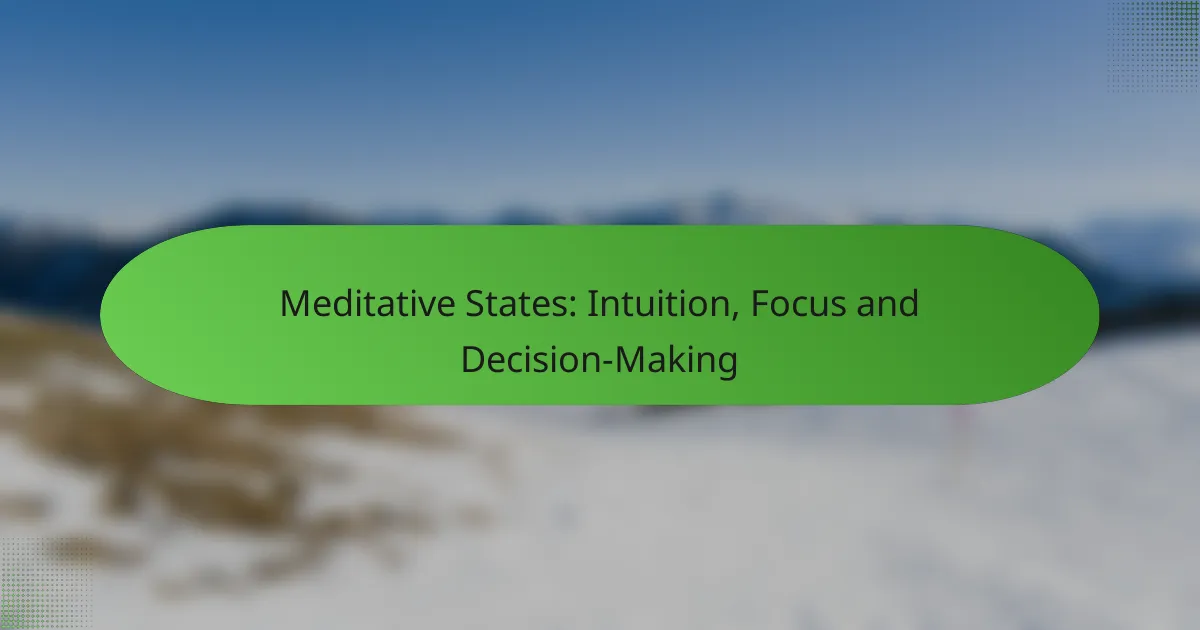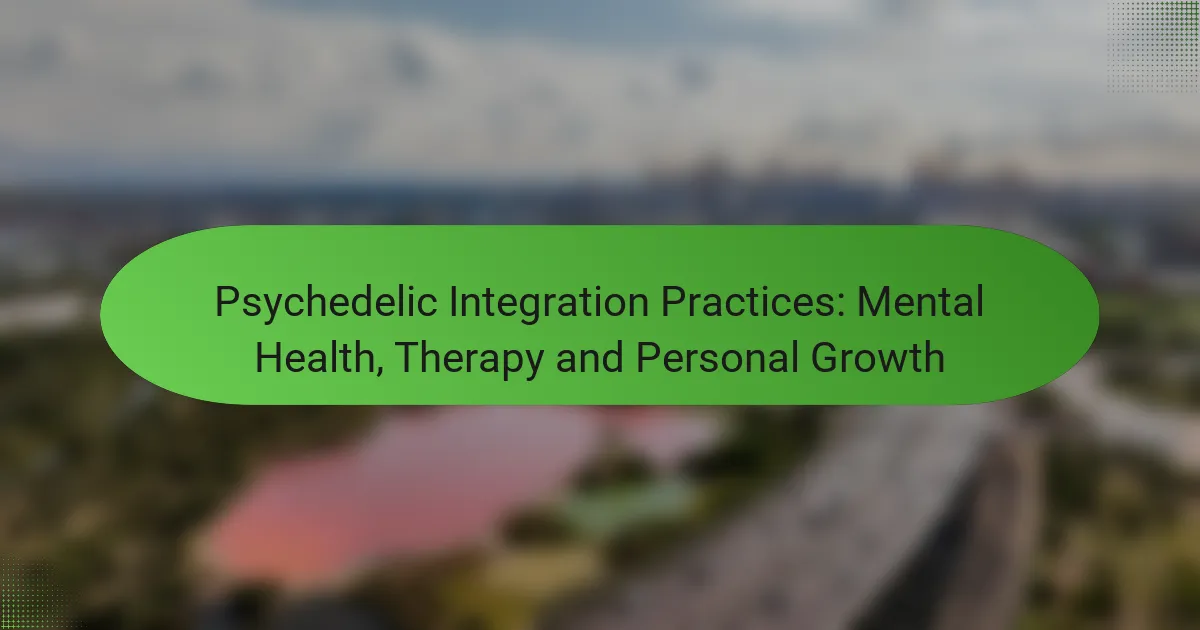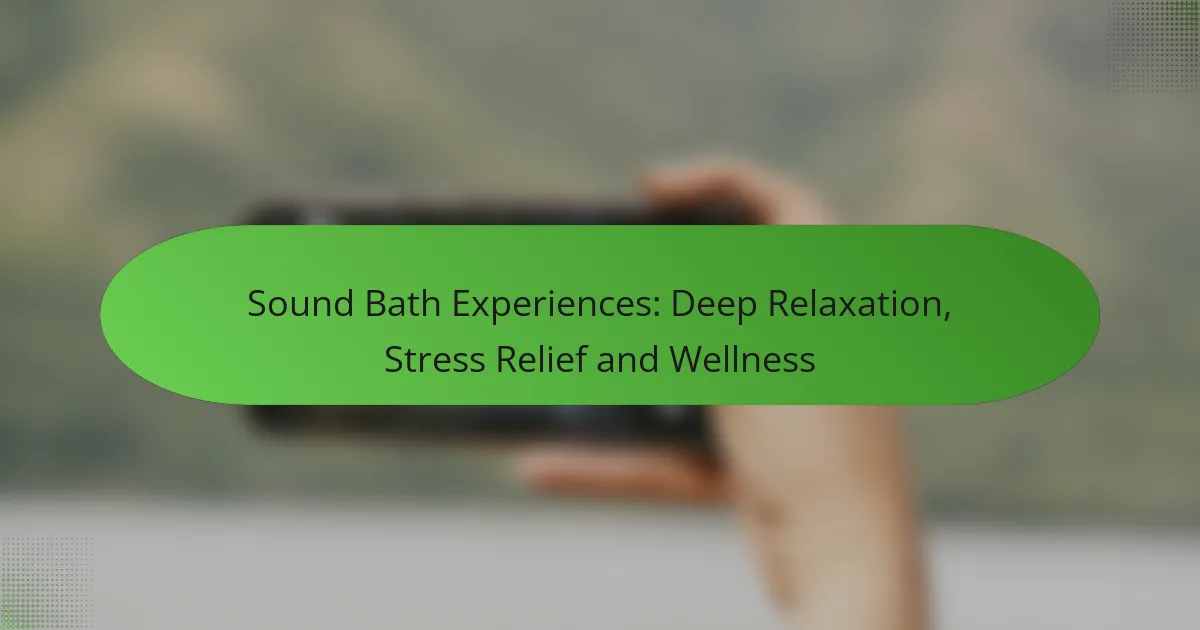Meditative states play a crucial role in enhancing decision-making by fostering mental clarity, boosting intuition, and alleviating stress. By engaging in various meditation techniques, individuals can cultivate deeper self-awareness and sharpen their focus, ultimately leading to more insightful and effective choices. Regular practice not only strengthens intuitive insights but also trains the mind to concentrate, significantly improving overall decision-making skills.

How Can Meditative States Enhance Decision-Making?
Meditative states can significantly enhance decision-making by promoting mental clarity, boosting intuition, and reducing stress. These benefits allow individuals to approach choices with a more focused and insightful mindset, leading to better outcomes.
Improved clarity and focus
Meditation practices help clear mental clutter, allowing for sharper focus on the task at hand. By training the mind to concentrate, individuals can sift through information more effectively and identify key factors influencing their decisions.
Regular meditation sessions, even if just for a few minutes daily, can lead to noticeable improvements in attention span and cognitive function. Techniques such as mindfulness or breath-focused meditation are particularly effective in honing clarity.
Increased intuition and insight
Engaging in meditative states can heighten one’s intuition, providing deeper insights into complex situations. This enhanced intuition allows individuals to make decisions that align more closely with their values and instincts.
For instance, professionals in high-stakes environments often report that meditation helps them tap into their gut feelings, leading to more confident and timely decisions. Practicing visualization during meditation can further strengthen this intuitive process.
Reduced stress and anxiety
Meditation is well-known for its ability to lower stress and anxiety levels, which can cloud judgment and hinder decision-making. By fostering a sense of calm, individuals can approach choices with a clearer mind and reduced emotional interference.
Incorporating stress-reduction techniques, such as progressive muscle relaxation or guided imagery, can enhance the benefits of meditation. This practice not only improves mental well-being but also promotes a more balanced perspective when faced with challenging decisions.
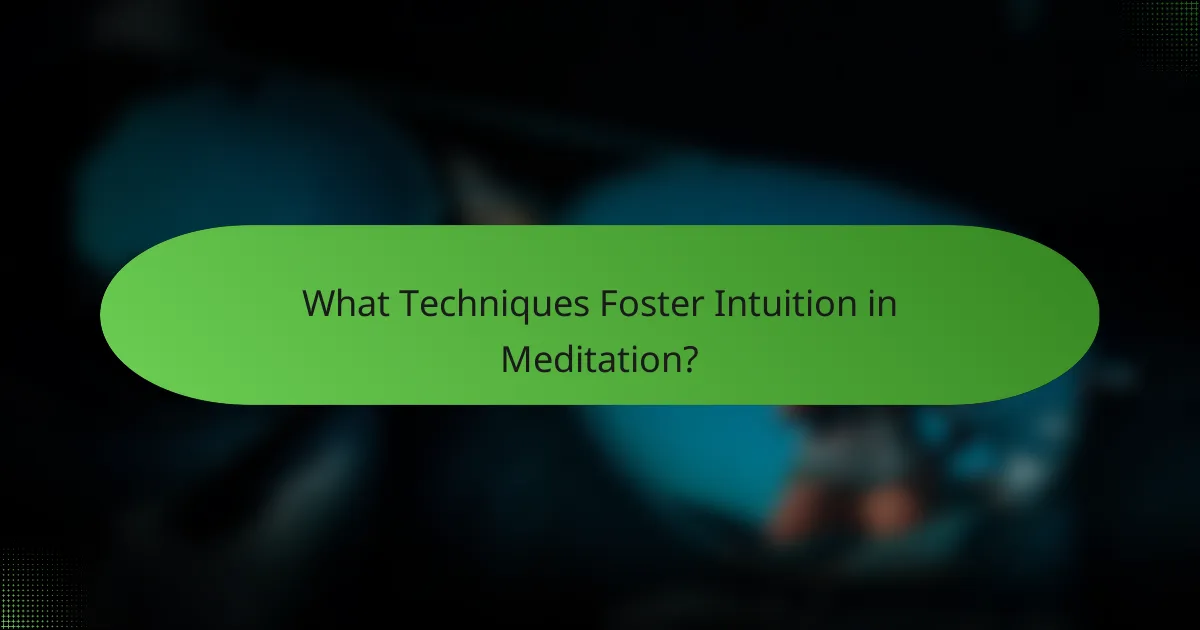
What Techniques Foster Intuition in Meditation?
Several meditation techniques can enhance intuition by promoting deeper self-awareness and mental clarity. By practicing these methods regularly, individuals can improve their decision-making abilities and strengthen their intuitive insights.
Mindfulness meditation
Mindfulness meditation involves focusing on the present moment without judgment. This practice helps cultivate a heightened awareness of thoughts and feelings, allowing for clearer insights and intuitive responses. To get started, find a quiet space, sit comfortably, and concentrate on your breath for 5-10 minutes daily.
As you progress, try to observe your thoughts as they arise, acknowledging them without attachment. This can help you recognize intuitive nudges more easily, as you become less reactive and more attuned to your inner voice.
Guided visualization
Guided visualization uses imagery to create a mental environment conducive to intuition. By visualizing specific scenarios or outcomes, you can tap into your subconscious mind and enhance your decision-making process. Consider using audio recordings or apps that lead you through these visualizations.
During a session, focus on the details of the imagery, such as colors, sounds, and emotions. This immersive experience can help clarify your thoughts and feelings, making it easier to access intuitive insights when faced with choices.
Body scan meditation
Body scan meditation promotes awareness of physical sensations and can deepen your connection to intuition. By systematically focusing on different parts of your body, you can release tension and become more in tune with your feelings. Start by lying down comfortably and directing your attention to your toes, gradually moving up to your head.
As you practice, notice any sensations or emotions that arise in each area. This heightened awareness can help you recognize intuitive signals that might otherwise go unnoticed, enhancing your ability to make informed decisions based on your body’s responses.
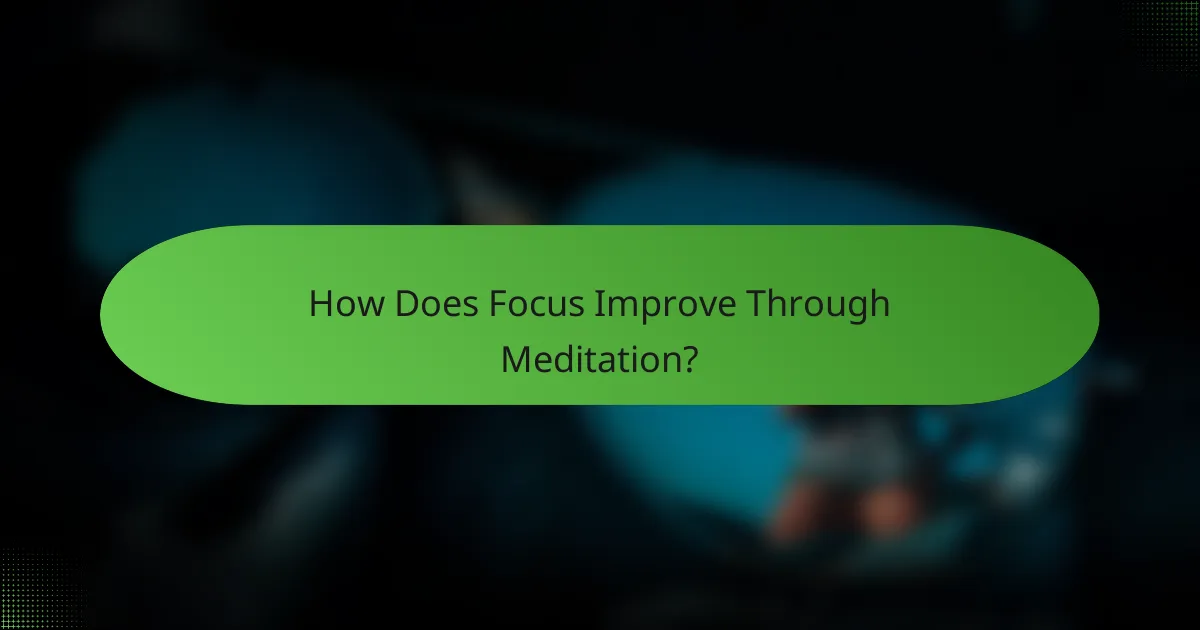
How Does Focus Improve Through Meditation?
Meditation enhances focus by training the mind to concentrate on specific thoughts or sensations, reducing distractions. This practice fosters mental clarity and increases the ability to maintain attention over time, which can significantly improve decision-making skills.
Concentration techniques
Concentration techniques involve methods that help anchor your attention to a single point of focus. Common practices include visualizing an object, repeating a mantra, or focusing on a specific thought. These techniques can be practiced for short durations, typically ranging from 5 to 20 minutes, to gradually build your concentration capacity.
To enhance effectiveness, ensure your environment is free from distractions. Consider using a timer to track your sessions, which can help you gradually increase the duration as your focus improves.
Breath awareness practices
Breath awareness practices center on observing your breathing patterns to cultivate mindfulness and enhance focus. By paying attention to each inhalation and exhalation, you can ground yourself in the present moment, which helps reduce mental clutter. Start with simple exercises, such as counting breaths or noticing the sensations of air entering and leaving your body.
These practices can be integrated into daily life, taking just a few minutes during breaks or before important tasks. Regular engagement can lead to a noticeable improvement in your ability to concentrate on complex decisions.
Daily meditation routines
Establishing a daily meditation routine can significantly boost your focus over time. Aim for consistency by setting aside a specific time each day, whether in the morning or evening, to practice meditation. Sessions can vary in length, but even 10 to 15 minutes can be beneficial.
To create an effective routine, choose a quiet space, sit comfortably, and select a technique that resonates with you. Tracking your progress through a journal can help maintain motivation and highlight improvements in your focus and decision-making abilities.

What Are the Benefits of Meditation for Professionals?
Meditation offers numerous benefits for professionals, including enhanced focus, improved decision-making, and better emotional resilience. These advantages can lead to increased productivity and a more harmonious work environment.
Enhanced productivity
Meditation can significantly boost productivity by improving concentration and reducing distractions. Regular practice helps professionals maintain focus on tasks, allowing them to complete work more efficiently.
To incorporate meditation into a busy schedule, professionals can start with short sessions of just 5-10 minutes daily. Gradually increasing the duration can lead to even greater benefits, with many finding that 20-30 minutes is optimal for sustained focus.
Better emotional regulation
Practicing meditation enhances emotional regulation, enabling professionals to manage stress and respond calmly to challenges. This improved emotional control can lead to better decision-making and reduced workplace conflict.
Techniques such as mindfulness meditation can help individuals recognize their emotional triggers and develop healthier responses. Professionals should aim to practice these techniques consistently to cultivate a more balanced emotional state.
Improved team collaboration
Meditation fosters a culture of mindfulness, which can enhance team collaboration. When team members practice meditation, they often become more empathetic and better communicators, leading to stronger relationships and smoother interactions.
To promote collaboration, organizations can offer group meditation sessions or workshops. These initiatives not only improve individual well-being but also create a more cohesive team dynamic, ultimately benefiting overall productivity.
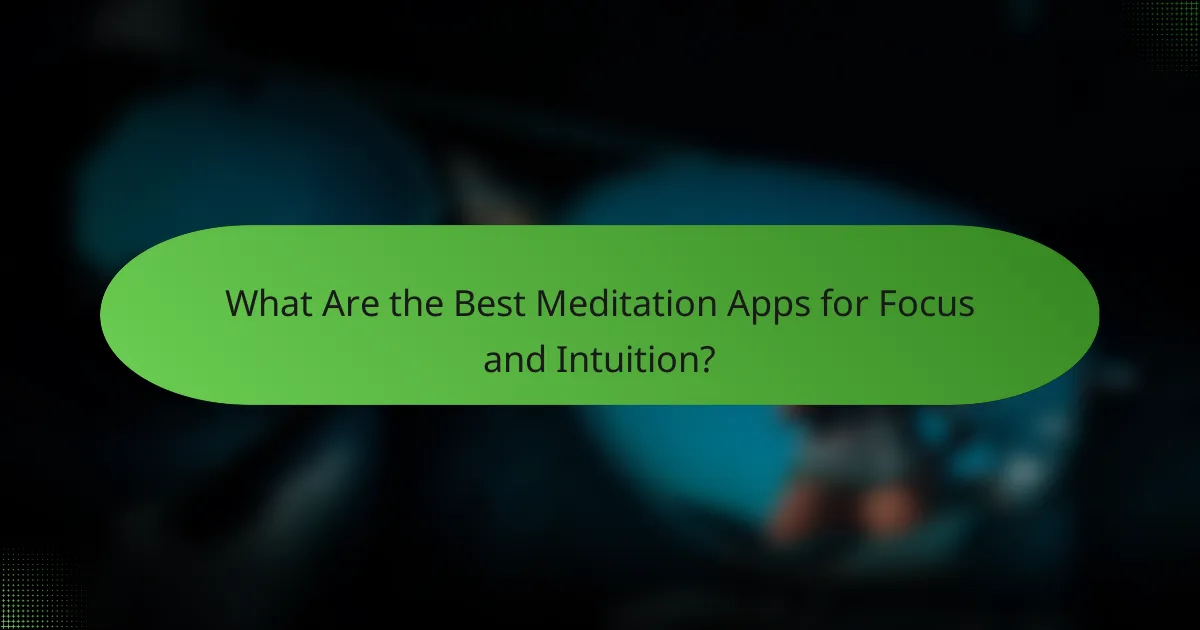
What Are the Best Meditation Apps for Focus and Intuition?
Several meditation apps are designed to enhance focus and intuition, helping users make better decisions. The best options typically offer guided sessions, customizable features, and a variety of techniques to suit individual preferences.
Headspace
Headspace is a popular meditation app that provides a structured approach to mindfulness and focus. It offers a range of guided meditations specifically aimed at improving concentration and enhancing intuitive thinking.
Users can choose from various courses that target specific goals, such as stress reduction or productivity enhancement. The app’s user-friendly interface makes it easy to navigate through different sessions, and its animations help illustrate key concepts.
Calm
Calm focuses on relaxation and mental clarity, making it a great choice for users looking to boost their focus and intuition. The app features guided meditations, sleep stories, and calming music, all designed to create a peaceful environment for meditation.
With sessions ranging from a few minutes to over an hour, users can easily fit meditation into their daily routines. Calm also includes features like daily reminders and progress tracking to encourage consistency in practice.
Insight Timer
Insight Timer is a free meditation app that offers a vast library of guided meditations and talks from various teachers. It is particularly useful for those seeking to enhance their focus and intuition through diverse techniques.
The app allows users to customize their meditation experience by selecting different lengths and styles, including mindfulness and visualization practices. Insight Timer also fosters a community aspect, enabling users to connect with others and share their experiences.
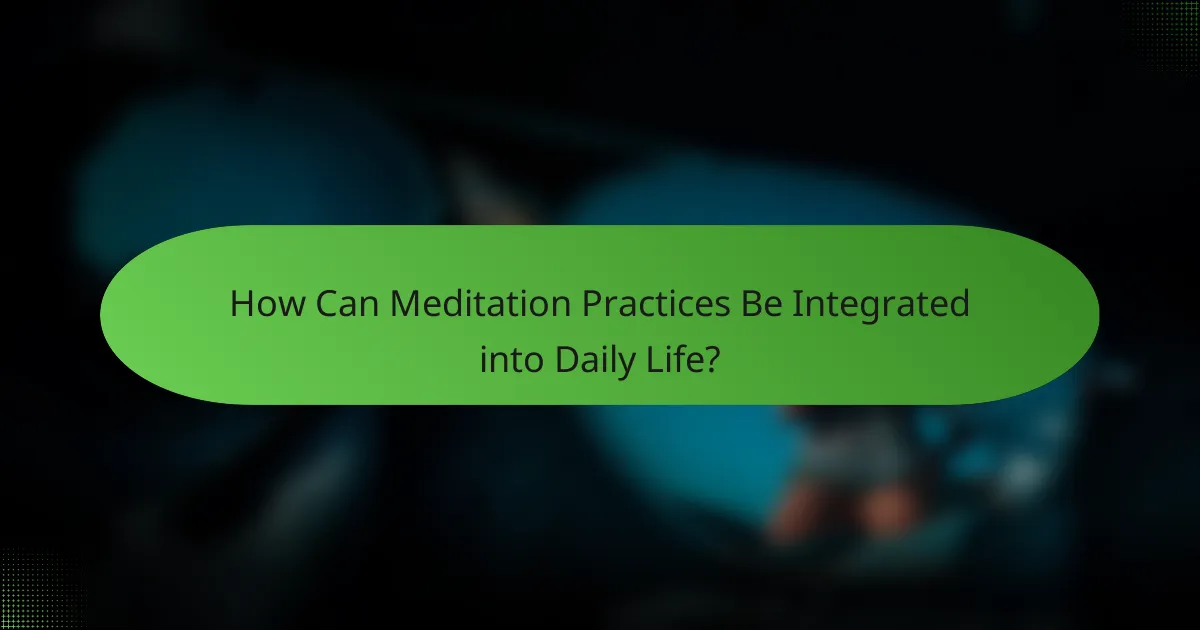
How Can Meditation Practices Be Integrated into Daily Life?
Meditation practices can be seamlessly integrated into daily life by incorporating short sessions into routine activities. Simple techniques can enhance focus, intuition, and decision-making without requiring significant time commitments.
Start Small with Daily Sessions
Begin with just a few minutes of meditation each day. Even five to ten minutes can significantly improve mental clarity and emotional regulation. Gradually increase the duration as you become more comfortable with the practice.
Incorporate Mindfulness into Routine Activities
Mindfulness can be practiced during everyday tasks such as eating, walking, or even washing dishes. Focus on the sensations and experiences involved in these activities to cultivate a meditative state throughout the day.
Use Guided Meditations and Apps
Many apps offer guided meditations tailored for various needs, such as stress relief or improved focus. Explore options like Headspace or Calm, which provide structured programs that can fit into your schedule.
Set Reminders and Create a Dedicated Space
Establish a specific time and place for meditation to create a habit. Use reminders on your phone or sticky notes in visible areas to prompt you to take a moment for mindfulness.
Engage in Group Meditations
Joining a local meditation group or participating in online sessions can enhance motivation and accountability. Group settings often provide a supportive environment that can deepen your practice.
